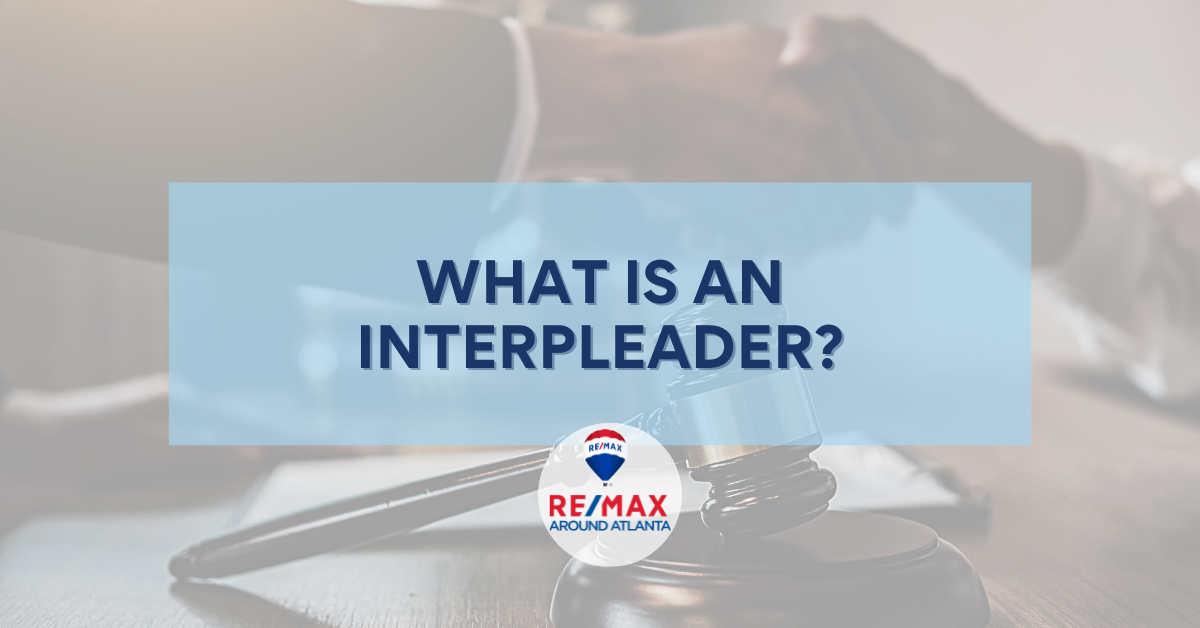|
An interpleader is generally thought of as a situation where two parties are both claiming the same money being held by a third party where the third party has no claim to the funds but is unsure which of the two parties is entitled to the funds. In such an instance, the party holding the funds can sue both claimants, deposit the funds into the registry of the court and ask the judge to decide who is entitled to the funds. Interpleader actions are often filed by real estate brokers when earnest money disputes cannot be resolved. (garealtor.com FAQs)
If the real estate broker who is the holder of the earnest money cannot get the parties to agree and cannot make a reasonable decision based on the terms of the Purchase Agreement and the facts, an interpleader action can be filed, and the funds are deposited with the appropriate court. The court then makes the disbursement decision. An interpleader is costly and time consuming. It should be used as a last resort. The threat of an interpleader can spur an agreement between the parties.
1 Comment
You can't tell the difference between a Condo and a Townhome just by looking at them. It's not style, design, or physical characteristics that determine the answer. It's an OWNERSHIP ISSUE.
To determine if a townhome is fee simple or condominium ownership, you should ask for a copy of the community’s legal documents. If it is a fee simple townhome, the first page of the legal documents will typically be written as declaration of covenants, conditions, and restrictions (CCR’s) or something similar. If the property is condominium ownership, the first page will always say declaration of condominium. What is the difference between Fee Simple and Condominium ownership? 1) FEE SIMPLE “The largest, most complete bundle of rights one can hold in land and land ownership.” If the property is a fee simple townhome, the townhome is a part of a community where the property has been subdivided so the property owner owns the lot and the townhome that sits on the lot. Even though townhomes have common walls, fee simple ownership is very similar to a single-family home. In fee simple ownership, typically the owner is responsible for maintenance of the exterior walls, roof, and yard. 2) CONDOMINIUM “Individual ownership of a space of air plus undivided ownership of common areas.” A condominium is not a subdivision of real property. Basically, the title holder owns everything inside the interior walls. From the exterior walls out is owned by all owners as one body. Each homeowner has a share of the common areas. All exterior maintenance and upkeep of the grounds is usually managed by the HOA or board. It is important to know the type of ownership of a property prior to listing the property or representing a buyer on a purchase. As a Listing Agent, you should request that sellers provide copies of the tax bill, survey (if one exists), the community’s legal documents, name & contact information for the HOA and/or property manager, and the property’s legal description. As a Buyer’s Agent, you should review the listing for the property type and HOA dues. You should also do extra due diligence to confirm the type of ownership. It may be easier for a buyer to obtain mortgage financing on a simple townhome than it is on a condominium. For condominiums, underwriters typically have more guidelines and regulations. The buyer will need to go through the process of qualifying as a borrower and the lender also needs to confirm that the condo is approved. A referral is made by recommending the services of another party, person, company, or service.
If a Broker or any Licensee refers a client or customer to another Broker or Licensee and expects to be paid a referral fee, or something of value, then the client or customer must be given written disclosure of the referral fee. However, the amount of the referral is not required to be disclosed. That information should be documented between the two Brokers involved in the transaction. The required disclosure applies even if the referral is made to a Broker in another state, or country. Referrals for products or services other than brokerage services, such as mortgage brokers, warranty services, etc. must also be disclosed. The following are Unfair Trade Practices (UTP) that can result in disciplinary action from the Georgia Real Estate Commission as detailed in 43-40-25. Violations by Licensees, Schools, and Instructors; sanctions; unfair trade practices. (b) Licensees shall not engage in any of the following unfair trade practices: (6) Failing to disclose in writing to a principal in a real estate transaction any of the following: (A) The receipt of a fee, rebate, or other thing of value on expenditures made on behalf of the principal for which the principal is reimbursing the licensee; (B) The payment to another broker of a commission, fee, or other thing of value for the referral of the principal for brokerage or relocation services; or (C) The receipt of anything of value for the referral of any service or product in a real estate transaction to a principal; (36) Failing to obtain a person’s written agreement to refer that person to another licensed Broker for brokerage or relocation services and to inform such person being referred whether or not the Licensee will receive a valuable consideration for such referral. Article from GREC Newsletter January 2024 While title insurance is an essential safety net, it’s important to know its limitations. Inexperienced buyers may confuse it with homeowner’s property insurance or a home warranty, but they are vitally different.
While not all title policies cover the same things, there are a number of items that are unlikely to be covered in a general title insurance policy. It’s important to educate your buyers on the proper title insurance coverage. Some of the items that may or may not be covered are:
|
RMAAReal Estate News, Brokers Blog & More Categories
All
Archives
July 2024
|





 RSS Feed
RSS Feed